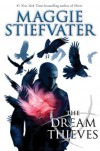4
Followers
4
Following
Mith's Bookshelf
Just testing the waters here, and still hoping GR gets it together soon!
 “Once upon a time they was two little girls,” I say. “One girl had black skin, one girl had white.” Mae Mobley look up at me. She listening.
“Once upon a time they was two little girls,” I say. “One girl had black skin, one girl had white.” Mae Mobley look up at me. She listening.“Little colored girl say to the little white girl, ‘How come your skin be so pale?’ White girl say, ‘I don’t know. How come your skin be so black? What you think that mean?’
“But neither one a them little girls knew. So little white girl say, ‘Well, let’s see. You got hair, I got hair.’ ” I gives Mae Mobley a little tousle on her head.
“Little colored girl say ‘I got a nose, you got a nose.’ ” I gives her little snout a tweak. She got to reach up and do the same to me.
“Little white girl say, ‘I got toes, you got toes.’ And I do the little thing with her toes, but she can’t get to mine cause I got my white work shoes on.
“‘So we’s the same. Just a different color,’ say that little colored girl. The little white girl she agreed and they was friends. The End.”
That scene about sums up the gist of the book. The story depicts the time of the civil rights movement in the 1960s and what it meant to be a black maid during that turbulent time.
Tired of the whites treating the blacks as something more repulsive than the dirt on their shoes (the black help are forced to use separate toilets, are not allowed to eat at the same dinner table as the whites, are not allowed to even touch the whites or look them in the eye), three women - two black maids and one white woman get together to write a book on the stories of the help, about how they've been treated by all the people they've ever worked with so far, in the hope that it might bring about a revolution and change life as they know it, for the better.
In a way, the book reminded me of the time a couple of decades ago, when some of the orthodox older generations in India (South, esp.) wouldn't let the maids into their kitchens and touch their food or dishes, and how they used to take a shower if one of those people, the "Shudras", touched them by accident or otherwise. I, personally, know of some extremely orthodox people who still maintain those "beliefs" to this day.
Coming back, funny and gut-wrenching at parts, the book is very well written with each of the narrators having a distinct voice. All of the characters are nicely fleshed out, although a few do seem superfluous (Stuart, for example - he added nothing to the story)
The violence and abuse the black society had to face during the sixties is just awful to read about. Reading the book, you feel like you were punched in the stomach at a few parts - Celia's story arc was utterly sad for me as was the ending where Aibileen was saying goodbye to Mae Mobley, while Elizabeth just stood there knowing what she was doing wasn't right but doing it anyway because she was weak enough to not be able to say no to Hilly, AGAIN. Not all is bad though, there are some stories where the whites have been extremely good to the blacks and treated them as equals, which are heart-warming to read about. The ending didn't have a good enough resolution for me, Hilly didn't get the comeuppance she deserved and I was NOT HAPPY about that!
You'll like Skeeter, feel comforted by Aibileen, laugh with Minny (and at the Terrible Awful Thing that she did), feel sorry for Mae Mobley and Celia, and hate, hate, HATE "Two-slice" Hilly! I want to watch the movie based on this book, now, but I'm worried that they might have ruined the story, like THEY'VE BEEN KNOWN TO (coughAlmostAllTheHarryPotterMoviescough)





